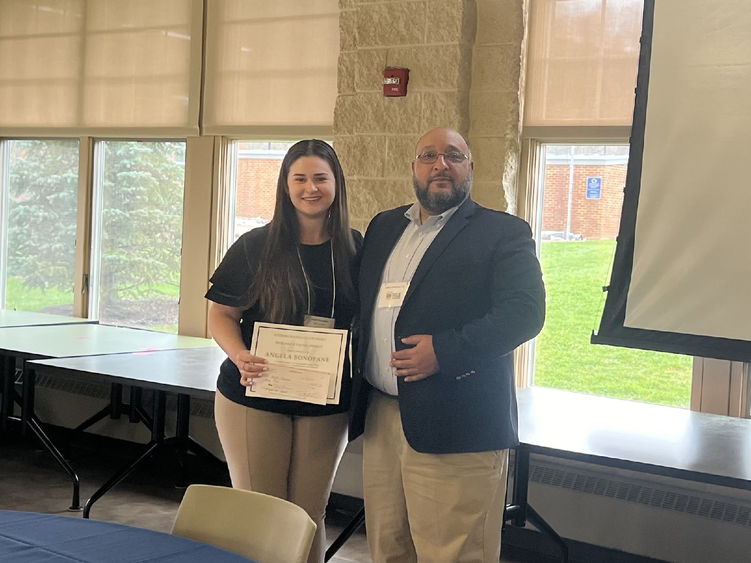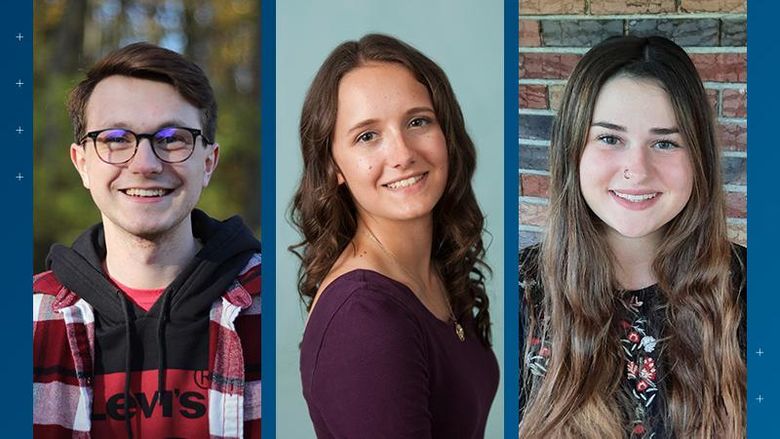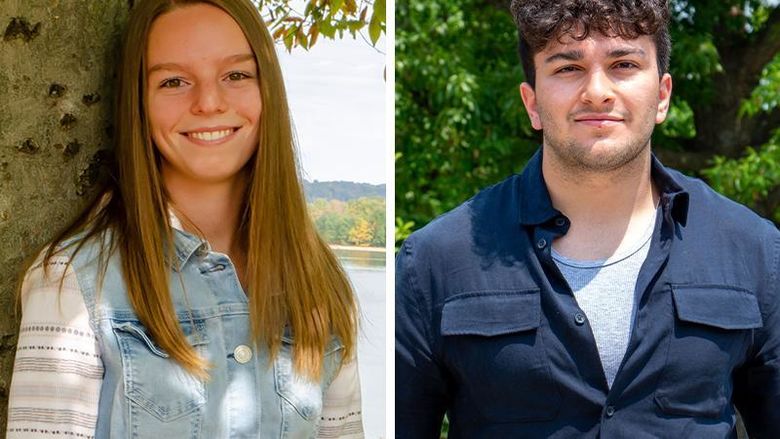
Penn State Berks 2024 alumna Angela Bonopane, left, earned the Best Undergraduate Research Paper Award from the Pennsylvania Academy of Criminal Justice Educators (PACJE) – a statewide organization of faculty, practitioners and students in criminal justice.
WYOMISSING, Pa. — Penn State Berks 2024 alumna Angela Bonopane earned the Best Undergraduate Research Paper Award from the Pennsylvania Academy of Criminal Justice Educators (PACJE) — a statewide organization of faculty, practitioners and students in criminal justice. She also received the PACJE Bernie Meyer Student Scholarship and presented her research at the conference.
Bonopane, a criminal justice major with a minor in sociology from Mount Bethel, Pennsylvania, won for her paper titled, "Police perspectives on overdose responses: Advancing preventative strategies," which examines local police chiefs’ policies on naloxone training and use and their perceptions of law enforcements’ role in responding to overdose calls.
Her interest in this area of research stems from her coursework and her independent research with Jennifer Murphy, associate professor of criminal justice, where they examined different harm reduction strategies and how police officers perceived their practical implementations. Additionally, Bonopane has witnessed the impact of drug use.
As part of her research methods, Bonopane interviewed police chiefs about overdose calls, naloxone carrying policies within departments, and attitudes towards naloxone as a harm reduction strategy. From there, she analyzed the transcriptions of the interviews to look for recurring themes in the chiefs’ answers.
“My results revealed that immediate overdose procedures closely resemble one another in terms of carrying and administering naloxone throughout police departments included in this study. Chiefs shared the view that naloxone is an important resource for implementing harm reduction strategies/policies, but they are still limited in their abilities to assist individuals following a successful overdose reversal,” Bonopane said.
However, given that many overdose victims can refuse treatment after an overdose and are protected from many legal repercussions, officers’ unsuccessful efforts to divert them into treatment has led to a sense of burnout. Therefore, additional training on using evidence-based strategies for effectively persuading individuals to seek drug treatment may help to reduce officers’ limitations.”
Bonopane credits the faculty at Penn State Berks for helping her succeed.
“Penn State Berks set me up for success, particularly through the faculty members who invest their time in their students’ education and futures. I transferred to Penn State Berks as a 2+2 student and within my first semester, I was offered a student research position, exposed to several future internship opportunities, and given ample networking opportunities,” she said.
As for her future career, she said she wants to establish and prioritize effective methods of addressing the opioid epidemic.
“In the field of substance use prevention and treatment, many current practices lack a foundation that is supported by scientific evidence and are very limited in their positive effects,” Bonopane said. “As such, I want to ensure that all my professional practices are evidence-based to help the most people.”
Bonopane plans to pursue her master’s degree in clinical social work at Temple University in 2025. She wants to assist veterans struggling with substance use disorder through the Veteran’s Association upon obtaining her licensure. Currently, Bonopane works as a case manager at a re-entry service center for formerly incarcerated individuals.





